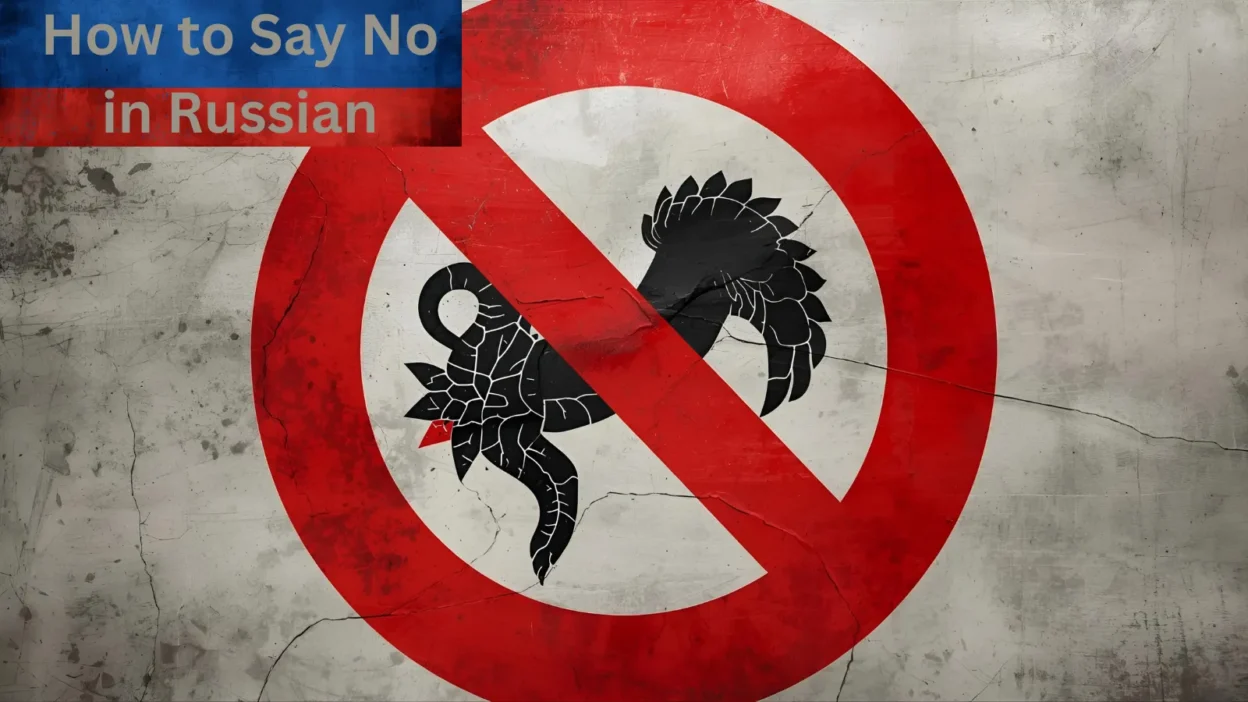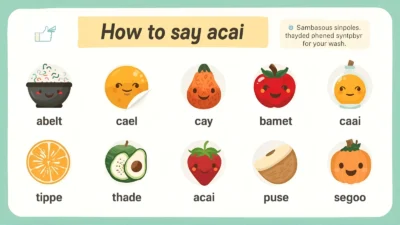Learning how to say no in Russian is essential for everyday communication, whether you’re refusing politely, setting boundaries, or simply responding casually.
The most common word is нет (nyet), but depending on the tone and context, Russians use different expressions to soften or strengthen the refusal.
Mastering these variations helps you sound more natural and respectful in conversations. With the right phrases, you can express confidence while still being polite in Russian.
Say No in Russian
15 Ways to Say No in Russian
| # | Russian Phrase | Pronunciation | Meaning / Usage |
|---|---|---|---|
| 1 | Нет | Nyet | No |
| 2 | Нет, спасибо | Nyet, spasibo | No, thank you (polite) |
| 3 | Ни за что | Nee za shto | No way / Never |
| 4 | Конечно нет | Konechno nyet | Of course not |
| 5 | Абсолютно нет | Absolyutno nyet | Absolutely not |
| 6 | Я думаю, нет | Ya dumayu, nyet | I don’t think so |
| 7 | Извини, нет | Izvini, nyet | Sorry, no |
| 8 | Не сейчас | Ne seychas | Not now |
| 9 | Никак нет | Nikak nyet | Definitely not (formal/military style) |
| 10 | Ни в коем случае | Nee v koyem sluchaye | Under no circumstances |
| 11 | Не думаю | Ne dumayu | I don’t think so |
| 12 | Увы, нет | Uvy, nyet | Sadly, no |
| 13 | Никаких шансов | Nikakikh shansov | No chance |
| 14 | Это невозможно | Eto nevozmozhno | That’s impossible |
| 15 | Даже не думай | Dazhe ne dumay | Don’t even think about it |
Let’s explore 15 essential ways to say no in Russian, with real-life dialogue examples and insights into when and how to use each phrase effectively.
1. Нет (Net) – No

Origin:
The standard and most direct way to say “no” in Russian. It’s been used for centuries and is universally understood.
Example:
👤 User A: Ты придешь на вечеринку? (Are you coming to the party?)
👤 User B: Нет, я занят. (No, I’m busy.)
Use: General, neutral, and most commonly used.
2. Ни за что (Ni za chto) – No way / Not a chance
Origin:
Literally means “not for anything.” Often used when firmly rejecting an offer or suggestion.
Example:
👤 User A: Попробуешь сырой чеснок? (Will you try raw garlic?)
👤 User B: Ни за что! (No way!)
Use: Strong refusal, often emphatic.
3. Нет, спасибо (Net, spasibo) – No, thank you

Origin:
Polite form of refusal, similar to English. Combines “no” with “thank you.”
Example:
👤 User A: Хотите чай? (Would you like some tea?)
👤 User B: Нет, спасибо. (No, thank you.)
Use: Polite and formal.
4. Не-а (Nye-a) – Nah / Nope
Origin:
Slangy and casual version of “нет,” commonly used in spoken Russian.
Example:
👤 User A: Ты уже сделал домашку? (Did you do your homework?)
👤 User B: Не-а. (Nope.)
Use: Informal and casual.
5. Увы, нет (Uvy, net) – Alas, no
Origin:
More literary or dramatic, adds emotion or regret to the refusal.
Example:
👤 User A: Ты можешь мне помочь? (Can you help me?)
👤 User B: Увы, нет. (Alas, no.)
Use: Formal or theatrical; often used to soften disappointment.
6. Конечно, нет (Konechno, net) – Of course not

Origin:
Slightly sarcastic or emphatic depending on tone.
Example:
👤 User A: Ты правда поверил в это? (Did you really believe that?)
👤 User B: Конечно, нет! (Of course not!)
Use: Emphatic or ironic.
7. Нет уж (Net uzh) – Definitely not / No way
Origin:
An old-fashioned yet expressive way to strongly reject something.
Example:
👤 User A: Дай мне свою последнюю конфету. (Give me your last candy.)
👤 User B: Нет уж! (No way!)
Use: Firm refusal, mildly emotional or humorous.
8. Не хочу (Ne khochu) – I don’t want to
Origin:
Used to express unwillingness to do something.
Example:
👤 User A: Идём в магазин? (Shall we go to the store?)
👤 User B: Не хочу. (I don’t want to.)
Use: Direct, often from children or in informal speech.
9. Не могу (Ne mogu) – I can’t

Origin:
Literally means “I can’t”; used when you want to say no but give a reason.
Example:
👤 User A: Пойдешь со мной в кино? (Will you go to the movies with me?)
👤 User B: Извини, не могу. (Sorry, I can’t.)
Use: Soft refusal, polite.
10. Не сейчас (Ne seychas) – Not now
Origin:
Used when you want to delay or postpone rather than refuse outright.
Example:
👤 User A: Поговорим? (Can we talk?)
👤 User B: Не сейчас, я занят. (Not now, I’m busy.)
Use: Mild, often used in workplaces or home.
11. Нет, извини (Net, izvini) – No, sorry
Origin:
Adds apology to refusal, softening the tone.
Example:
👤 User A: Можно я позаимствую твой ноутбук? (Can I borrow your laptop?)
👤 User B: Нет, извини. (No, sorry.)
Use: Courteous refusal.
12. Да ну! (Da nu!) – No way! / Are you kidding?
Origin:
A playful or surprised way of saying “no.” Depends heavily on tone and context.
Example:
👤 User A: Я выиграл миллион! (I won a million!)
👤 User B: Да ну! (No way!)
Use: Expresses disbelief more than refusal.
13. Не думаю (Ne dumayu) – I don’t think so
Origin:
A diplomatic or cautious refusal; implies doubt rather than flat rejection.
Example:
👤 User A: Ты придешь завтра? (Will you come tomorrow?)
👤 User B: Не думаю. (I don’t think so.)
Use: Soft and indirect.
14. Нет, это исключено (Net, eto isklucheno) – That’s out of the question
Origin:
A formal and firm rejection, often in official or serious settings.
Example:
👤 User A: Мы можем отменить встречу? (Can we cancel the meeting?)
👤 User B: Нет, это исключено. (No, that’s out of the question.)
Use: Strong, formal.
15. Категорически нет (Kategoricheski net) – Absolutely not
Origin:
A very strong and final “no.” Used in firm denials or moral objections.
Example:
👤 User A: Можно я возьму без спроса? (Can I take it without asking?)
👤 User B: Категорически нет! (Absolutely not!)
Use: Serious refusal with emphasis.
Conclusion:
Learning how to say no in Russian is not just about saying нет (nyet). It’s about understanding context, tone, and politeness. Whether you want to refuse gently, firmly, or humorously, these phrases will help you navigate conversations more naturally and confidently.

Sophia Mitchell is a passionate content writer known for creating clear, engaging, and informative articles.
She focuses on delivering well-structured content that is easy for readers to understand and trust.
Sophia Mitchell currently contributes quality writing to repliesnest.com, helping readers find accurate answers quickly.



